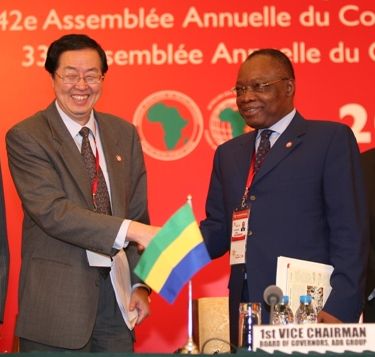From May 16-17, Shanghai hosted an annual meeting of the Board of Governors of the African Development Bank (AfDB). The Bank's decision to meet in Asia for the first time in its history testifies to China's growing hold over the African continent. During the past decade, China's political, economic, and military presence on the continent has surged. Notwithstanding Africa's declining share in world commerce, trade between Africa and China rose approximately 30 percent during each of the past five years. It now exceeds $50 billion annually, making China Africa's third-largest trading partner. Sub-Saharan Africa currently supplies about 30 percent of China's oil, with Angola's recently replacing Saudi Arabia as the largest national exporter of oil to China. Besides oil, Chinese importers purchase other African natural resources including timber, magnesium, and aluminum. Chinese government representatives insist that they aim to promote local industry, create a more favorable investment climate, and support the AfDB as well as other African institutions. China has already given more than $5.5 billion in economic assistance to Africa, including over $300 million through the AfDB. Beijing has also cancelled almost $1.5 billion in debt incurred by African countries. The Chinese military has provided major contributions, including over 1,000 military personnel, to various U.N. peacekeeping operations in Africa.
As African Presence Grows, China Should Become a Better Stakeholder

